Murderer Holmes’ career comes to an end on the gallows.
Stubborn to the last, he died as if entirely indifferent to his awful fate
Declaring his innocence.
The execution passed off without any incidents of a sensational nature.
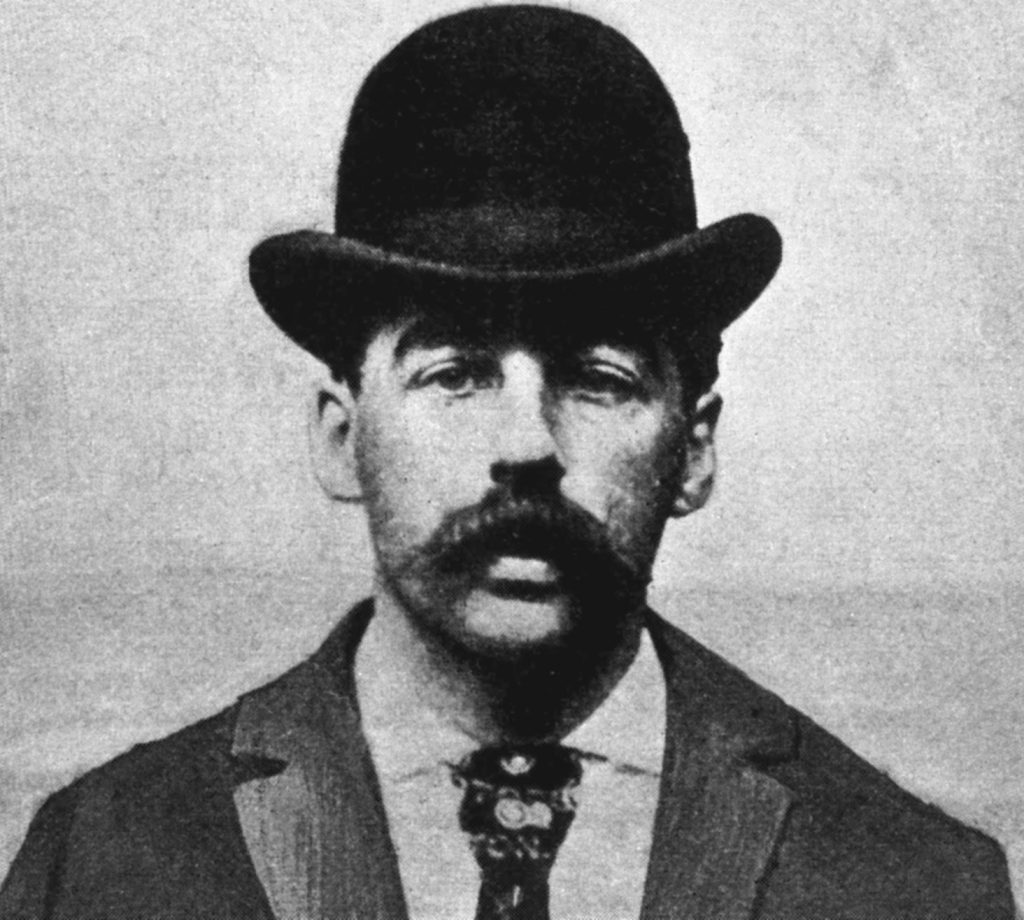
Philadelphia, Pa., May 7 — Herman W Mudgett, alias H H Holmes, was hanged this morning in the County Prison for the killing of Benjamin F Pietzel.
The drop fell at 10:12 o’clock, and twenty minutes later, he was pronounced dead by the prison officials, Dr Sharp and Dr Batcher.
The execution was in every way entirely devoid of any sensational features. To the last, Holmes was self-possessed and cool, even to the extent of giving a word of advice to Assistant Superintendent Richardson as the latter was arranging the final details.
He died as he had lived, unconcerned and thoughtless, apparently, of the future, even with the recollection still vividly before him of the recent confession in which he admitted the killing of a score of persons of both sexes in different parts of the country.
Almost his last words were a point-blank denial of any crimes committed except the deaths of two women at his hands by malpractice. Of the murder of several members of the Pietzel family, he denied all complicity, particularly of the father, for whose death he stated he was unjustly suffering the penalty. With the prayer of the spiritual attendants still sounding in his ears and with a few low-spoken words to those about him, the trap was sprang.
There were comparatively few persons gathered on the outside of the prison during the early part of the morning and the morbid throng which the prison officials expected would be drawn there by the execution was lacking. Access to the prison prior to the entrance of those permitted to witness the execution was not allowed.
All the arrangements for the burial of Holmes were entrusted by the murderer to Mr Rotan. The place of interment has, it is understood, been selected, but those who are most likely to know where the grave is to be will not divulge the location.
Holmes retired about midnight and slept soundly during the entire time until called at 6 o’clock this morning. So sound were his slumbers, in fact, that twice was he called before awakening. When the arrival of the Rev Fathers Dailey and McPake to administer the sacrament was announced he greeted them warmly, but with no show of emotion. For nearly two hours they remained in the cell and then were succeeded by Lawyer Rotan, the legal adviser of Holmes, who was also greeted pleasantly. There were several matters pertaining to Holmes’ worldly affairs that will yet have to be settled and this time was taken in giving the final details and explanations. While discussing his affairs breakfast was served, consisting of eggs, toast and coffee.
When the meal was ended, shortly before 9 o’clock, Holmes dressed himself in trousers, vest and cutaway coat of some dark mixed goods of a pepper and salt effect he had worn frequently.
At 10 o’clock, the doors leading to the long corridor in which was placed the gallows were opened and, two by two, led by the Sheriff’s jury, the spectators passed down. The last man had just passed through the doors and the latter closed when from behind was heard the slow and measured tread of the death party.
The suspense was almost painful, brief though it was, when, preceded by Sheriff Clements and Superintendent Perkins, Holmes appeared and stepped on the trap. On the right was Father Dailey, to the left Father McPake, and behind them Lawyer Rotan and Assistant Superintendent Richardson. The little party stood a moment looking down, and then, in response to a signal from one of those beside him, Holmes stepped forward. He spoke slowly and with measured attention to every word — a trifle low at first, but louder as he proceeded, until every word was distinctly audible.
“Gentlemen,” he said, “I have very few words to say, in fact, I would make no statement at this time, except that by not speaking I may be made to acquiesce in my execution. I only want to say that the extent of my wrongdoings in the taking of human life consisted in the death of two women, they having died at my hands as the result of criminal operations. I wish to state also, however, so that there will be no misunderstanding hereafter, that I am not guilty of taking the lives of any of the Pietzel family, the three children or the father, Benjamin F Pietzel, of whose death I am now convicted, and for which I am today to be hanged. That is all.”
As he ceased speaking he stepped back, and kneeling between Fathers Dailey and McPake, he joined with them in silent prayer for a minute or two. Again standing he shook hands with all about him and then signified his readiness for the end. Holmes was the coolest of the whole party. He even went to the extreme of suggesting to Assistant Superintendent Richardson that the latter should not hurry himself.
“Take your time; don’t bungle it,” Holmes remarked as the official exhibited some little haste, the outcome of nervousness. These were almost his last words. The cap was adjusted, a low-toned query, “Are you ready?” and an equally low-toned response, “Yes, good-bye,” and the trap was sprung.
Holmes’ neck was not broken, and there were a few convulsive twitches of the limbs that continued for about ten minutes. “But he suffered none after the drop,” said Dr Scott, the prison physician. The trap was sprung precisely at 10:12-1/2, and fifteen minutes later Holmes was pronounced dead, though the body was not cut down until 10:45. When it was laid out on the stretcher occurred the only incident approaching the revolting in connection with the affair.
The knot bad become jammed, and the efforts of the doctors failed to loosen it as they attempted to remove the noose from about the neck. The head was twisted about from side to side in the attempt, and finally it was decided to cut the rope. Superintendent Perkins objected, however, and the knot was undone after several minutes of trying work.
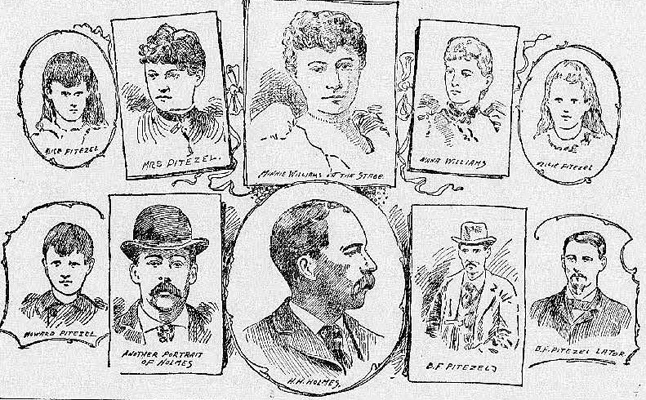
Herman W Mudgett alias H H HolmesAfter the body had been viewed by the physicians and the manner of death determined the stretcher on which it lay was wheeled out of the corridor into the jailyard. Here it was placed in an ordinary cheap pine coffin, wide enough and deep enough to have held two men of Holmes’ size. The coffin was put aboard an undertaker’s wagon and conveyed to the Roman Catholic Cemetery of the Holy Cross. The only persons at the cemetery were the undertaker and his assistant, two grave-diggers, two watchmen and a couple of newspaper men. The little company acted as pallbearers, and carried the coffin to the receiving vault. The last act in the receiving vault was performed at Holmes’ express command.
The lid of the coffin was taken off and the body was lifted out and laid on the ground. Then the bottom of the coffin was filled with cement. The body was then replaced in the coffin and covered with cement. It was Holmes’ idea that this cement would harden around his body and prevent any attempt at grave robbery. The coffin was left in the receiving vault under the guard of two watchmen, who will remain on duty all night.
Tomorrow afternoon, the body will be interred in a grave in the cemetery, and it is probable that at the time religious services will be conducted by Father Dailey. Holmes made no will and left no confession. This is according to Mr Rotan.
He says he knows Holmes made no will, and, while the murderer gave him this morning a big bundle of papers, the lawyer says that he is confident that these papers relate only to private business matters. As yet, Mr Rotan has had no opportunity to examine them.
Mrs Pietzel was seen after Holmes was hanged. All she could say, between her sobs, was that she was glad that he had received her just deserts, but that his death would not return to her her husband or her children. Mrs Pietzel will return to her home, at Galva, Illinois, next week.
The two women referred to by Holmes in his confession from the scaffold were Julia Connor of Chicago and Emily Cigrand of Anderson, Indiana.
Holmes’ many crimes.
He had a ready “confession” to clear himself of each.
Herman W [Webster] Mudgett, better known as H H Holmes, was one of the most conspicuous criminals of modern times, and if the “murder confessions” which he has written can only partially be believed, he was without a peer as a bloodthirsty demon. His recent ingenious “confession,” wherein he claimed to have killed twenty-seven persons, was disproved, partly, at least, by the appearance of several of the so-called victims: but Holmes’ object in making the “confession” was realized — the obtaining of a sum said to be $7500 and which amount is said to have been settled upon the criminal’s 18-year old son. While the “confessions” have served to increase the sensationalism of the case, the only capital crime for which Holmes had to answer was the killing in this city on September 2, 1884, of Benjamin F Pietzel, his fellow-conspirator.
The murder was committed in the dwelling, 1316 Callowhill Street. Holmes’ conviction of murder in the first degree, the affirmation by the Pennsylvania Supreme Court of the verdict and the recent refusal of Governor Hastings to grant a respite, are so well known that a narration of these facts is unnecessary. Holmes was captured in Boston, Mass., in the latter part of 1894 by Owen Hanscom, the Deputy Superintendent of upon the strength of a telegram from Fort Worth, Texas, where he was wanted for horse-stealing and for other charges of larceny.
At that time, officials of the Fidelity Mutual Life Association of Philadelphia were hot on Holmes’ trail for defrauding the concern out of $10,000 in connection with Pietzel’s death, the latter being insured for that amount, and as the accused believed horse-stealing to be a high crime in Texas be voluntarily confessed to Deputy Superintendent Hanscom to the insurance fraud. He did not for a moment dream that he was then suspected of the murder of Pietzel and he came to Philadelphia without requisition papers. He expressed a willingness to be tried here on the conspiracy charge in preference to that of horse-stealing at Fort Worth.
Before leaving Boston Holmes made this “confession” to Mr Hanscom:
“When I concluded it was time to carry out our scheme to defraud the insurance company, I secured a ‘stiff’ in New York and shipped it in a trunk to Philadelphia. I turned the check for the trunk over to Pietzel on the Sunday nearest the 1st of September. I instructed him how to prepare the body, and in three hours we were on our way to New York. Ten days after the payment of the money, I saw Pietzel in Cincinnati. I took the three children to that city, where the father saw them.
“Pietzel agreed to go South and he took one child, Howard. I took the two girls to Chicago because I had business there. We all met again in Detroit. Pietzel took the children and went to South America. During all this time Mrs Pietzel knew her husband was alive, but she did not know he had the children. If she was aware of that she would insist that the crooked business be wound up right away. In order to keep Mrs Pietzel away from her husband, I had to tell her he was here and there, traveling from one city to another.”
This was the first of a number of alleged admissions that Holmes subsequently made. In fact he acquired a penchant for making “confessions” that surprised the authorities.
The insurance officials had good ground for believing Holmes had murdered Pietzel and the three children, so when the prisoner arrived in Philadelphia he was urged to make another “confession.” And he did so without any hesitation, but it varied somewhat from the one made in Boston. It graphically narrated how the body was substituted for Pietzel in the Callowhill Street house and its identification by Alice Pietzel as that of her father a week afterward.
Holmes also related how the money was received from the insurance company and its subsequent division between Mrs Peitzel, Jephtha D Howe, the St Louis lawyer, and himself. It was in this “confession” that Holmes accused Howe of receiving $2500 for his share in the transaction.
1316 Callowhill Street-1894Howe was indicted for conspiracy, but recently the case against him was dropped. Soon after Holmes was brought to Philadelphia Detective Geyer visited him in the County Prison in relation to the finding of the body at 1316 Callowhill Street on September 4, 1894. After an hour’s conversation with the wily Holmes, the detective emerged from the prison with a “confession,” in which the accused said the body was not that of Pietzel, but was one substituted to defraud the insurance company.
A week later, Holmes honored Geyer with another “confession.”
“Mr Geyer,” he said, “that story I told you about the substituted body is not true. It is the body of Benjamin F Pietzel, but I did not murder him or his children. On Sunday morning, September 2, I found Pietzel dead in the third story of the Callowhill Street house. I found a note in a bottle, telling me that he was tired of life and had finally decided to commit suicide. He requested me to look after the insurance money and take care of his wife and family. I then fixed up the body in the position it was found. These children you speak of are all right. They are with Minnie Williams in London. I gave Howard to Minnie Williams in Detroit, and I sent Alice and Nellie to her from Toronto. They met Miss Williams in Niagara Falls, and sailed for Europe from New York.”
Between this time and his trial for conspiracy to defraud the insurance company, to which he pleaded guilty, Holmes made many other “confessions,” but they differed very little from those already given. Each time he pretended to tell the truth, but he suddenly avoided doing so. Nobody believed what Holmes said about Pietzel, and he would not say anything about the children, except that they were all right.
In his many interviews with District Attorney Graham, Holmes persisted that the three missing Pietzel children were with Minnie Williams in London. He even persuaded Mr Graham to have an advertisement in the shape of a cipher puzzle inserted in a New York paper for the purpose of bringing Minnie Williams and the three little Pietzels back from Europe. The District Attorney placed little faith in what Holmes had told him, but the “ad” was published as a sort of last and hopeless effort. When the bodies of Nellie and Alice Pietzel were unearthed in Toronto, Holmes denied having killed them. When Howard’s charred remains were located in a superannuated stove in Irvington, Ind., Holmes calmly denied any knowledge of the lad’s death.
When the murders of Minnie Williams and her sister were discovered, Holmes said Minnie killed Nanny in a jealous frenzy and he buried the body in Lake Michigan. He vigorously denied having put Minnie to death so as to secure her property. The disappearance of Emily Cygrand was traced to Holmes, but the criminal said he knew nothing of the girl’s fate. The partially consumed bones that were found in the Chicago “castle” are known to be those of some of Holmes’ victims. About the last time that Holmes was taken to the District Attorney’s office to “confess,” Mr Graham lost patience with him. Holmes gave a repetition of his picturesque falsehoods. He actually gave the District Attorney a veritable “jolly” about the Peitzel family and Minnie Williams being still alive. The scene that ensued was extremely dramatic.
Mr Graham said: “Holmes, you are an infernal, lying murderer. I will hang you in Philadelphia for the murder of Benjamin Pietzel.”
Holmes’ nerve was still with him and he said: “I defy you. You have no evidence to prove me guilty.”
Mr Graham looked with disgust and determination at Holmes and said: “You will surely hang in Philadelphia for murdering Benjamin Pietzel.”
The trial and conviction followed. The District Attorney endeavored to prove during the trial through Detective Geyer, that Holmes also killed the Pietzel children, but Judge Arnold, before whom the case was tried, declared this to be irrelevant. Geyer had unearthed the murder of the children after a prolonged investigation, and the commonwealth was prepared to prove that Holmes also committed these crimes.
Holmes embraced the Catholic faith when it became evident to him that he must hang, and Rev Father Dailey ministered to his spiritual wants.
Throughout his trial and subsequent imprisonment Holmes maintained a nonchalance that was remarkable.
http://www.hhholmesthefilm.com/memorabilia.html
http://www.executedtoday.com/2010/05/07/1896-h-h-holmes-americas-first-serial-killer/
http://www.biography.com/people/hh-holmes-307622
http://www.allthingscrimeblog.com/2015/01/06/the-monstrous-h-h-holmes-and-his-murder-castle-inc-7/
http://torontoist.com/2014/09/historicist-h-h-holmes-in-toronto/
http://www.neatorama.com/2014/12/16/HH-Holmes-The-Monster-and-His-Castle-2/



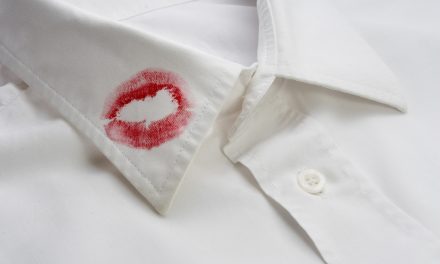
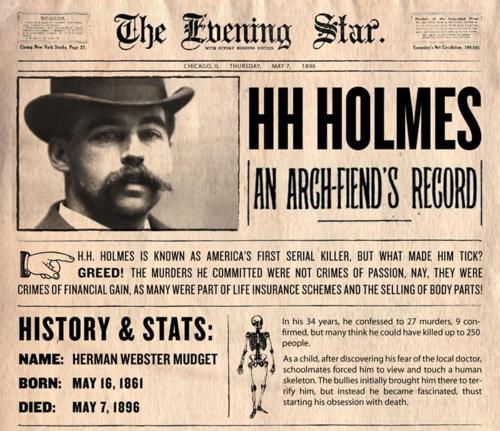
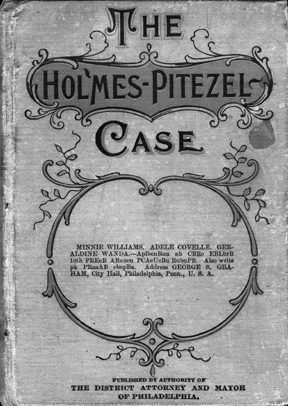
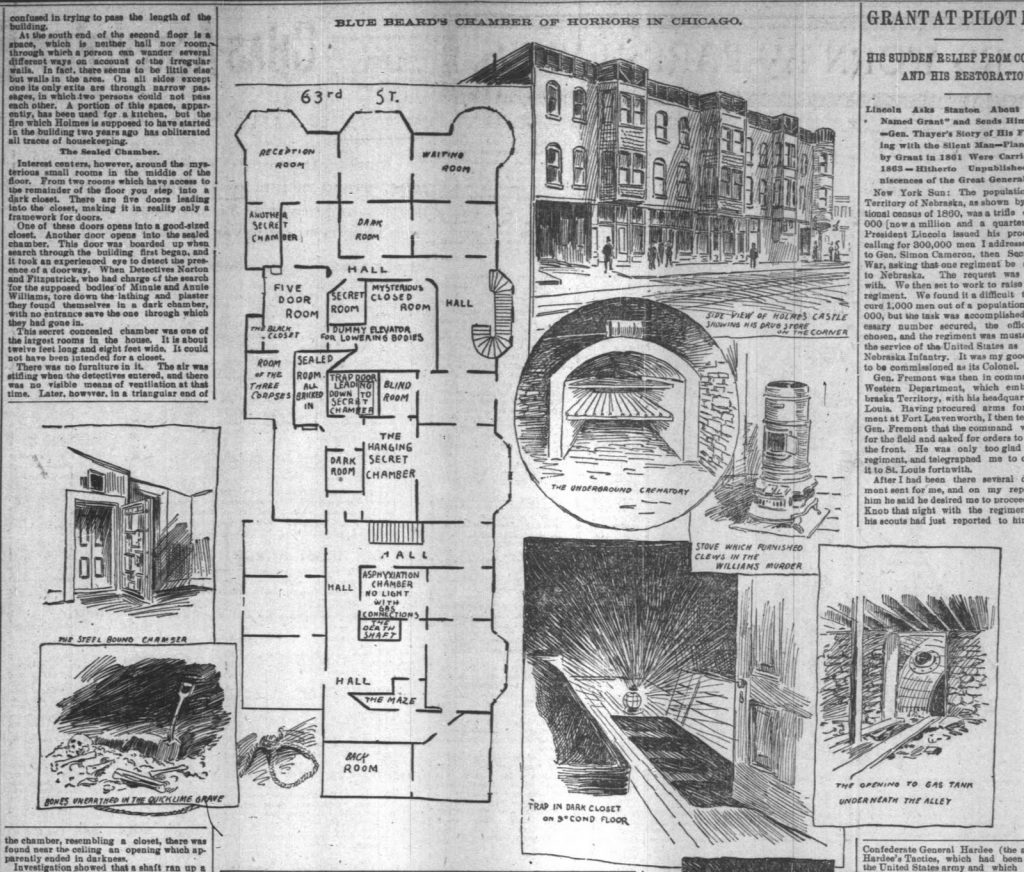
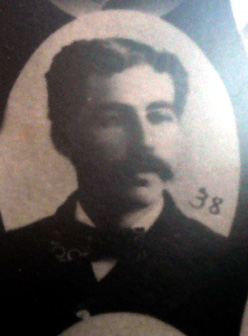

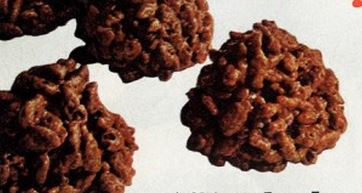
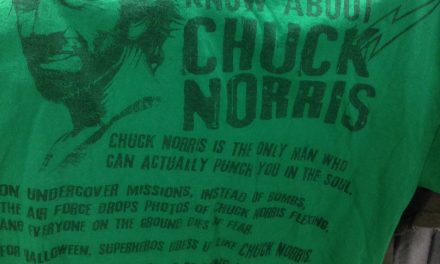
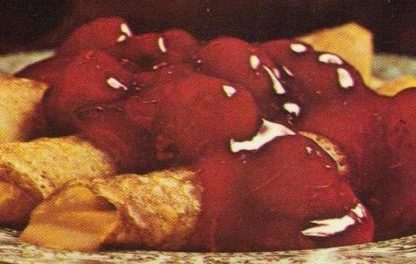





Wow